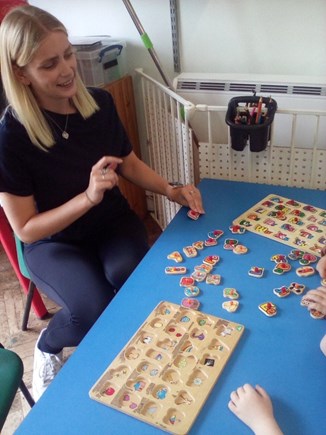
Having started this degree during the pandemic in 2020, my university experience was largely affected by the lockdowns and online learning taking place at the time. I feel the degree has given a broad overview of early childhood, and the professional practice of working with children and their families. It has given me the skills to continue developing my practice and also a strong foundation to look for a wider range of jobs within the field, or for further study.
 WHY DID YOU DECIDE TO DO THIS PARTICULAR ROUTE, AND WHY DID YOU CHOOSE TO PURSUE STUDYING EARLY YEARS?
WHY DID YOU DECIDE TO DO THIS PARTICULAR ROUTE, AND WHY DID YOU CHOOSE TO PURSUE STUDYING EARLY YEARS?
My interest in becoming a primary school teacher is one I have always been aware of – making registers for my friends, and even planning my own lessons, was play I regularly enjoyed as a child.
Register now to continue reading
Thank you for visiting Nursery World and making use of our archive of more than 35,000 expert features, subject guides, case studies and policy updates. Why not register today and enjoy the following great benefits:
What's included
-
Free access to 4 subscriber-only articles per month
-
Unlimited access to news and opinion
-
Email newsletter providing activity ideas, best practice and breaking news
Already have an account? Sign in here









